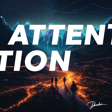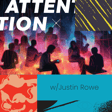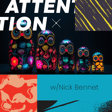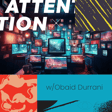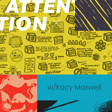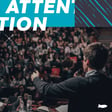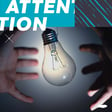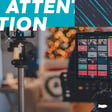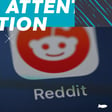Become a Creator today!Start creating today - Share your story with the world!
Start for free
00:00:00
00:00:01

What a Podcast Marketing Strategy Should Look Like w/Carey Straetz
In this episode, Dan Sanchez talks to Carey Straetz who is the Head of Demand Generation at Mode Analytics.
They cover:
- The podcast she helped launch at her last company
- The paid media and creative elements they used to promote it
- The proper elements of a marketing plan to execute it
Thank You For Listening to the Attention Podcast! Don’t forget to hit Subscribe or Follow us on your favorite podcast player so that you never miss an episode! If you want this podcast delivered to you via email, you can subscribe here: https://www.theirattention.com/p/subscribe/
The Attention Podcast is brought to you by Sweet Fish, the podcast agency for B2B brands.
They cover:
- The podcast she helped launch at her last company
- The paid media and creative elements they used to promote it
- The proper elements of a marketing plan to execute it
Thank You For Listening to the Attention Podcast! Don’t forget to hit Subscribe or Follow us on your favorite podcast player so that you never miss an episode! If you want this podcast delivered to you via email, you can subscribe here: https://www.theirattention.com/p/subscribe/
The Attention Podcast is brought to you by Sweet Fish, the podcast agency for B2B brands.
Transcript
Introduction to Podcast Marketing with Carrie Straits
00:00:03
Speaker
Welcome back to the Attention Podcast, where you learn how to gain and retain the attention of your buyers to grow an audience.
00:00:10
Speaker
I'm Dan Sanchez with Sweetfish, and today I talk to Carrie Straits, who is the head of demand generation at Mode Analytics, about what a podcast marketing strategy should look like. In the interview, we talked about the podcast she helped launch at her last company, the paid media and creative elements they use to promote it, and the proper elements of a marketing plan to execute it. If you're new to the show, hang around for the last few minutes to hear my takeaways. All right, let's get into it.
00:00:43
Speaker
Carrie, welcome to the show. Hi, it's great to be here.
Challenges in Content Distribution
00:00:47
Speaker
Absolutely. In our pre-interview, you mentioned that you see a lot of marketers build content channels and then continue to produce content for them, never ever spending time thinking about how to distribute that content or get people to look at it. Essentially, they're building it and then just hoping they'll come, right?
00:01:06
Speaker
What was that movie, the Field the Dreams movie? They kind of pulled the Field the Dreams. So why do you think people do that for starters? I think it's a challenge to put budget behind promoting your content channels. They're not directly generation channels, right? Something like a podcast, your content channels.
00:01:23
Speaker
tends to be more upper funnel. And so building the business case around it can be really, really difficult. I also think that sometimes marketers, it just doesn't occur to them that they need to start promoting it. Like you produce some content and you think you're just going to build an organic audience and that can be true for blogs for sure. When it comes to podcasting, it's a little bit different because it's really, really difficult to build that organic
00:01:47
Speaker
audience can't bid on keywords, you can't do those things that you can do on a blog. So I think one, it's building the business case to promote your own content. But two, it's also having the awareness that you need to be promoting your content. It's kind of funny, even with the blog, or I would say with YouTube, which has discoverability built in, unless you actually have done it or know how to build
00:02:11
Speaker
get discovered on YouTube or actually know how to do SEO well enough to get it ranked. The chances of it actually happening, I find, are pretty low. Unless you've tried it before, but I feel like I've seen lots of channels launched, blog, YouTube, podcast, even social channels on at least their company page where they're actually posting.
00:02:31
Speaker
They just keep posting and then they're like, well, the rankings aren't there. And then they, I don't know what it is, but they don't even, maybe they just don't even look at the rankings or consider it that way. Right. But I know that's not the way you approach launching these channels. So can you share your approach with the audience?
00:02:48
Speaker
Yeah.
Planning a Go-to-Market Strategy for Podcasts
00:02:49
Speaker
So for a company, I launched a podcast my team did. And I would say 50% of the work was planning out the season, the first season, editorial calendar, guest speakers, speaking guidelines, inclusion and diversity guidelines, and the other 50% my team spent on our go-to-market plan for our podcast. So how are we going to market it? How are we going to build an audience quickly to prove an ROI for this type of content?
00:03:13
Speaker
And we looked at both earned and owned media. So we looked at it like, great. Okay, so we're going to put this in our customer newsletter, right? We're going to have an internal employee contest to have some downloads and to source reviews. But then we really looked at where are we seeing success in our distribution channels for demand gen. And we put, I would say roughly $20,000 in paid media behind the podcast.
00:03:38
Speaker
So we looked at paid social and promoting the podcast to our audiences on paid social. So Facebook, Instagram, and LinkedIn. We put money behind YouTube advertising for our podcast.
Investment in Podcast Promotion
00:03:51
Speaker
We put money behind programmatic display. That was a real driver for us.
00:03:55
Speaker
and getting people to the podcast pages. And we also did some programmatic eyes on podcasts. We did just straight programmatic placements, but we also did placements on specific podcasts where we knew our audience was. And so this was a huge effort. It was almost as much effort as producing the podcast itself, but we had really, really great results for the entire sphere of my budget. This was a minuscule amount of budget.
00:04:22
Speaker
And I think that we would not have had the success had we not actually shouted from paid mountaintops that we have a podcast. It is good for you. Here's what you're going to get. Come on over to our website where we built out a podcast section and start listening. And the results that we got were pretty stunning. They were stunning.
00:04:43
Speaker
I mean 20k, 20k spread out over like how many months? I believe that was just the first month and I didn't get that new budget for this. We had to sort of piece it together from other places or take it out of general campaigns that we were running.
00:04:57
Speaker
So you spent about 50% of your time towards it and 20K just to kick this thing off. Did you have an ad budget afterwards to kind of continue growing the audience? Or was it just 20K to bam, like flash in the pan, get it everywhere and kick this thing off? We continually promoted the podcast. After we saw the 30 day report out on the results that we were getting behind our efforts, it was hard to say, no, no, no, we shouldn't do this anymore. This is just not a good use of money. It was like,
00:05:24
Speaker
Oh, we need to put more money behind this effort because this is really driving a lot of website traffic for us, which is great, right? Because we can cookie and retarget. We also knew from looking in Google Analytics that if somebody ended up on our podcast page, we could look at the user paths and they consumed more podcast content.
00:05:44
Speaker
So there was a stickiness to this content on our website where we were able to bring people in with just an episode and then they consume several others. So we started to sort of build an organic base in that manner. Gosh, it makes so much sense because once you consume one, you consume multiple. And then it's just the fact that they're spending, I mean, how long were your podcast episodes? 30 minutes, probably maybe more.
00:06:08
Speaker
They were around 30 to 40 minutes and it was, you know, sort of like real life stories from our target audience. And so it was really, really relatable. And you just said something that is so common that I didn't think about at the time. Like when I'm, when I find a new podcast that I love, I binge it. And that's kind of what we were seeing in the data that everyone had to send it out.
00:06:29
Speaker
It's like, you don't just check out one episode. If you're interested in a podcast, you'll take a few swings before you're like, this isn't me. Right? Right. Right. Yeah. I'll bounce around on the episode history to find interesting titles and either
Crafting the Podcast's Value Proposition
00:06:41
Speaker
love it or leave it and find something else.
00:06:44
Speaker
And it's so much consumption. They're spending so much time with your company in their ear, right? Because podcasts are long. And even if they're listening to it at 2X, it's still a lot of information and time spent with you, now the company. So I have so many questions after you kind of opening up that foray into how you launched your podcast.
00:07:03
Speaker
So if you don't mind, I'm going to go circle back a little bit. Sure. You said you dropped or 20K to launch. Like what was the allocation of that towards all these different channels? Did you kind of just sprinkle 2K, 3K evenly across all these channels? You said you did Facebook and Instagram ads, LinkedIn, YouTube, Programmatic plus Programmatic podcasts. That's a lot of mediums to spread 20K around still. Yeah. That's getting everywhere real fast.
00:07:31
Speaker
Right. We put $5,000 behind Facebook, Instagram, and LinkedIn for paid social. And the other $15,000 against Programmatic and the private podcast buys. We chose that allocation because the targeting that we could find in Programmatic based on intent signals was much, much better than what we were able to find on paid social. So that was sort of the deciding factor. And let's put a little bit more investment behind Programmatic because we know we're getting in front of the right audience.
The Role of Programmatic Podcast Ads
00:08:00
Speaker
Okay. For the programmatic podcast, did you have audio ads you were recording and inserting it dynamically into podcast content? Of course he did. There's so many different ways to do it. People just sometimes buy banner ads on podcast apps and call it podcast ads, right? Oof. I was aware of that. I don't know anybody who's watching those, but they're there. There's free or cheap podcast apps where they're there.
00:08:22
Speaker
I know as I check out all the podcast apps as the professional podcaster, I'm always like, I look at every single app to see what's going on. So programmatic audio, man, what were you booking those through? Like what kind of platform were you booking programmatic podcast audio through? We had an agency who had a DSP that leveraged it for us. Okay. That helps. What'd you do for creative across the different platforms?
00:08:48
Speaker
See, here's where it gets interesting. I think that you have a post on LinkedIn about what your podcast logo should look like because everyone's going to see it in their podcast streaming app. And I actually hold a contrarian view to that. If you're marketing your podcast correctly,
00:09:04
Speaker
your audience is going to see this logo everywhere outside of the ecosystem of their podcasting app. You're going to see it on their Facebook or their LinkedIn or Reddit, or they're going to get served an ad somewhere and they're going to see your logo and then they'll go to the podcasting app to find it. So I look at it a little differently because I looked at such a big go-to-market plan.
00:09:24
Speaker
I'm a big fan of having really nice cover art for a podcast. I'm not sure when I posted this, but it must have been a while ago because I don't think I've talked about cover art in a while. Ah, okay. Must have been a while ago. Or it could have been one of my colleagues, maybe I commented on. There's a lot of people out there on LinkedIn talking about podcasting, so I wouldn't be surprised.
00:09:43
Speaker
I'm like, oh, it's been a while. So you're a big fan of having really nice cover art or at least really recognizable cover art so that it's easy to read, stands out, communicates the message, all that kind of stuff. Because it's the cornerstone of your go-to-market art direction or Vis ID. It's going to be everywhere.
00:10:04
Speaker
So it makes a lot of sense. You're essentially doing a lot of ads, pointing them to the website, but also just creating pull, like they do in shopper marketing when you're trying to get people to buy stuff at Walmart. You advertise and then it pulls people through your product through Walmart. Essentially, you're trying the same thing, which makes a lot of sense because
00:10:23
Speaker
While some people will go and listen to it on your website and maybe even by email, most people are just going to go to their favorite podcasting app and find it. Right. Right. What did the creative look like on the visual side and the audio side? Did you just say, hey, new podcast? We did promote the name of the podcast. This is top funnel. We focused purely on the value that the audience is going to gain from the podcast. We did not focus on our brand.
00:10:48
Speaker
at all. So it was sort of like small business owners telling their founder stories, pitfalls, and things that you can learn when you're starting your own business. We did not talk about our brand. It was solely just, here's a great piece of content for you. We didn't have our logo in it at all.
00:11:05
Speaker
You mainly just advertise the broad value proposition of the show on audio and the visuals. Let the cover art shine probably in the visuals. Yeah, precisely. It's coming together in my mind. This is good. And one of the few examples I've seen of no logo usage, not talking about your product. And that's usually what I have to talk people out of when I'm trying to talk them into doing some similar work.
00:11:28
Speaker
Because you're advertising to grow the audience, not sell product. The selling the product comes later, but wouldn't it be nice to have your own audience to actually advertise your own products too? Because then that's pretty much free other than the time it takes.
00:11:43
Speaker
Yeah, I was very, very grateful to work with my team who absolutely got it. If anybody was like, we need to put our brand logo on this ad, my team was like, no, that's not going to happen. This is a pure content, agnostic content play for our audience. That must be a thing. Agnostic content? Oh, I've been saying that for a long time.
00:12:05
Speaker
That's new to me. And you'd be such a referred-to-upper funnel. Oh, yeah. And my leadership also understood when I put together my business case, this is a top funnel strategy. This is how we're going to grow brand awareness through really good content, but also deepen customer loyalty at the bottom of the funnel by producing stories that they like to listen to. And they understood the idea of brand agnostic. We're writing the content. It's a 30-day test.
00:12:30
Speaker
If it doesn't work out, then we'll sort of make some optimizations along the way. But leadership was also behind us and no logo, promote the content, and let's see what happens. All right. So after the first month launch, what did you pair your ad spend down to? Or did you hold the 20K a month for a while? And did you lose any channels after the first month that just used certain channels?
00:12:54
Speaker
We held onto the $20,000. We may have increased it sort of around the time that our business has some seasonal highs. So we increased the budget there to grow, obviously, top funnel brand awareness. We did stop doing YouTube advertising. We had done it in a couple of different ways, but we didn't do it well, I don't think. We recorded our podcast and we released it on YouTube.
00:13:15
Speaker
just as a recorded version of our podcast. It was the same content. We really didn't promote that a whole lot. And we didn't see any traction or activity. We saw people staying on YouTube and that's fine, but that doesn't get them to my site where they learn my brand. So we sort of cut out that channel after the first 30 days and really focused on paid social with Facebook, Instagram, and LinkedIn and Programmatic. Okay.
00:13:39
Speaker
It's interesting you cut out YouTube because it wasn't on your website, but most of the podcasts app listening doesn't happen on your website either. Yeah, I think that's a fair statement. I don't know that I've got a good answer for that. Yeah, I don't know. We felt like it was... We were not paying enough attention to what was going on to it to make an investment. It was a resource allocation thing, but also like, again, getting people to our website was really important. Yeah, thought that bad.
00:14:07
Speaker
I think a lot more about YouTube only because podcast listening by YouTube is on the rise. I feel like it's other podcasts, less business podcasts. There's a lot of topics around podcasts, around religion, true crime, major topics. A lot of people listen to podcasts for many reasons outside of business and career, which is a big category, but not the only category. So I don't know a lot of people consuming business content on YouTube, but still YouTube podcast listening is on the rise.
00:14:35
Speaker
Which is crazy to me because it's audio first, but people for some reason, I've had enough people tell me like, oh yeah, no, I just opened up on another tab and click play. And I'm like, huh, I don't know. That's a thing. My team that worked on putting this podcast together, there were a few members who didn't listen to the podcasts and I love them. I listen to all kinds of them. And one of them was talking to, I think it was her brother and she was like,
00:15:00
Speaker
Carrie, he does the weirdest thing." I was like, what? She's like, he listens to podcasts on YouTube. Who does this? I was like, I guess it makes sense. And so that was one of the reasons that we tried YouTube, like hosting it there, but also ads. It just didn't, it didn't get the traction that we had hoped for. It could be because it's B2B.
00:15:21
Speaker
Yeah, I do find that the people who are doing it well, almost like you almost have to rethink about how you're doing it. Like it has to be more visual. You have to think about a little bit more set design and think about it more like, you know, kind of like that sports talk thing you got going on at the end of football games or like a panel that CNN might do.
00:15:41
Speaker
right? Like you have to think about it like that. It's mainly like there's not a lot of visual elements that you would miss if it was only audio, but it's still a little bit more visual in the nature than just a typical podcast with two people sitting in their own rooms recording the episode together on Zoom or something. So I think there is that dynamic. Otherwise, like, I don't know, I've probably watched a few Joe Rogan episodes, just little clips as he's talked to interesting people here and there, but I don't listen to the full episode that way.
00:16:11
Speaker
Right, right. No, same. And I still use Spotify. I don't listen to podcasts on YouTube. So it's interesting. It was a good experiment, I think. Absolutely. So one of the things you did to kick off the growth of your channel is you actually made a marketing plan. And I find that while a lot of companies, especially if they're smaller, don't build marketing plans at all for anything, let alone for launching a podcast or a new content channel.
00:16:37
Speaker
So, what did you include in your marketing plan to launch your podcast channel? Sure.
Components of a Podcast Marketing Plan
00:16:43
Speaker
My marketing plan included obviously our strategy, upper funnel, increased awareness. It included our operational plan of how we were going to source the content, what the cadence was, who the hosts were.
00:16:56
Speaker
how we were going to use dynamic insertion for ads to promote our brand within the podcast. We planned for the editorial calendar. So we planned a two-quarter editorial calendar that had themes, special guests, and then what our shorts segments were. So we had full episodes and then we had shorts.
00:17:15
Speaker
I included a business case in my marketing plan, which is where the bread and butter was, and the goal was to drive 5% incremental website traffic that would generate, you know, I could work the math backwards and say, we're going to get a couple hundred leads, I think, if this thing works out the way that I want it to, at a really great cost for lead. And by the way, I'm going to spend $20,000 on marketing to promote this new piece of content. And it was fairly a slam dunk. It was well put together.
00:17:41
Speaker
if I could pat myself and my team on the back, but it was a full package. I served it up to my leadership and they were like, this is a really interesting idea. We never thought of it. Let's try it. And so like I said, the content plan or the marketing plan also included go to market. So that was how we were going to measure the success of each of our channels, how we were going to manage our podcast buys, what our target results were, and then the calendar for execution.
00:18:06
Speaker
I'd love to hear a little bit about the results. But first, before we do, you said there was a business case for it. What was the business case for? Was that the leads that you were going to produce and the cost per acquisition you were hoping to see was at the business case?
00:18:20
Speaker
That's the business case. So I was asking for two seasons, so two quarters of an investment plus YouTube for X amount of dollars with our production company. And then the metrics we were going to report out on like subscribers, downloads, website traffic and forecast. Like I think we can get 5% traffic and knowing how many.
00:18:41
Speaker
visits to our website result in a lead. Knowing that ratio, I can work back into leads and then knowing the conversion rate of leads from our website, I could say this is going to drive, I suspect, X amount of revenue at the end of the day by producing this content and then promoting it and then ultimately dropping those people into our funnel and our sales cycle.
00:19:01
Speaker
So it's having the business acumen to know that you need to put together whatever ratios or paths or best estimates to say, here's how we're going to give value to the business by producing this great brand agnostic content.
Results and Success Metrics
00:19:14
Speaker
So let's talk results starting with downloads. How many downloads did you drive?
00:19:20
Speaker
Just under 2000, a 30-day report out. And I'm not a podcaster. I don't know if that's good or bad. And your estimation is that good? Bad? Where does that fall for like... 2000 for 30 days? That's certainly over what most of our customers ever get in 30 days. In fact, that's more than what most of our customers... Provided most of our customers do not spend any ad spend promoting the podcast.
00:19:44
Speaker
I'm lucky if they even link it to the front of their website sometimes. I'm like just trying to get them to do one-on-one, hey, maybe we should put a link in the resources section of your website, like that kind of stuff. So the ones who actually implement the one-on-one material like usually get to 2000 downloads in about six months without paid media. But where did you guys end up at the end of six?
00:20:06
Speaker
I was no longer with the company at the end of six so I couldn't tell you that. I do know let's see we had had 1145 individual listeners. We drove 6% increase in incremental website traffic so that was
00:20:22
Speaker
27,000 new visits to our podcast pages from 19,000 unique individuals. So we brought 19,000 new individuals for our target audience to our brand website, to learn more about our podcasting website, who then binged more podcasting content, who then get put into our funnel because we're going to retarget them with ads. So it was all part of a bigger sort of marketing strategy for our content team. Yep.
00:20:51
Speaker
So, it's a pretty significant increase in traffic. What did that turn into as far as leads go? Leads took a little bit longer to nurture than we wanted to. These seemed to be more wanting to consume the content. We had to serve them more nurturers and more sort of brand agnostic content before we got down to lower funnel content. So, in terms of like the 19,000 that we drew from the unique individuals, we got 440 new leads.
00:21:16
Speaker
440 new leads substantial. Are you counting those as MQLs? Did you were able to track to see what they turned into SQLs? Yeah, we were able to track through MQL. SQL tracking got a little bit sketchy. It usually does. Yeah. Yeah. But that was 440 MQLs, not raw leads, MQLs, qualified. Well, fantastic. How would you know if you were to do this again, if the channel was still worth keeping after six months?
00:21:43
Speaker
If we were still able to attribute any top funnel activity to this content and clearly we can attribute top funnel activity to the content, I would look at six months of this activity is great. I would look at how can we further expand this to maybe repurposing to video or are there other content channels that we can stand up to fill gaps because
00:22:04
Speaker
this type of content that is not promoting our brand, that is just giving good value to our audience, is shown in a business case that we can produce MQLs from this without putting our brand in front of everybody's face, simply putting good content in front of their face. Yep. So are you taking this strategy to your next company? You bet. Absolutely.
00:22:27
Speaker
where I'm at now is with the data analytics platform company. And podcasts are a really good thing in this industry. So this is definitely something I'd like to replicate. It's super interesting. We've got a lot of great thought leaders at our company that would speak for us and are well connected. So they would be able to source speakers, which would make this a lot easier, but definitely this is a strategy I will replicate. Fantastic.
Replicating Success in a New Role
00:22:49
Speaker
Carrie, thank you so much for joining me on the Attention podcast. I've loved learning about how you built this whole thing out and how thought through it was in the execution. Where can people learn more about Mode Analytics and connect with you online if they want to ask you more specific questions? Sure. You can learn more about Mode Analytics at mode.com. You can find me on LinkedIn. Just search up Carrie Straits. I'm also on Twitter at Carrie Straits. Fantastic. Thanks again for joining me today. Thanks, Dan.
Key Takeaways and Final Thoughts
00:23:20
Speaker
All right, now let's talk about what caught my attention. This was a fantastic interview because there's very few case studies out there of what it takes to actually make a successful podcast. What I find is too many people put time and effort into the production, which is good because you need to make good content or at least make a plan to get better and better at it as you go if you're launching, you know, rough without any help, and that's fine too. But not enough people think about or put effort into promoting the podcast.
00:23:49
Speaker
It makes a lot of sense that if you're going to launch it and put all this time and effort money into it, that you should probably set aside a healthy budget in order to promote it and get it in front of your ideal buyers to grow the audience. What I loved is that she not only set aside the budget for it, but also time and energy to execute it.
00:24:07
Speaker
setting aside 20K in order to advertise the podcast and spreading it across multiple channels from Facebook and Instagram to LinkedIn to YouTube to programmatic to programmatic podcast advertising. She's ensuring that she's going to hit it right somewhere. Now, one thing I probably would have done over time is eliminate more and just stick to the best advertising channels that there were and just continue to spend more and more around the ones that are bringing the most results. It's a little harder to do this with a podcast
00:24:37
Speaker
because you're not going directly to email or to leads where you can actually track attribution and conversion rates. But there are some ways to do it if you're sending most people to a web page where they can consume the podcast or at least click through to the media player of choice. You can actually measure the time on page or have different
00:24:55
Speaker
attributes that you're aiming for in order to see which channels are working better. I also try to optimize by putting content into these channels. So like LinkedIn, for example, I like to optimize by putting not just a promotion to say, hey, check out our podcast that's geared towards X, Y, and Z, but actually taking some of the best pieces of content and putting it right into LinkedIn where they can watch it and consume it. If they like it, you know, having to call to action and go and listen to the full episode, I find makes for better advertising. But either way,
00:25:23
Speaker
Just getting it out there through paid promotion is what's going to help a channel grow, especially around the early days. So if you're launching a new channel, expect to put some paid promotion behind it for at least three months, if not six months, in order to start to get some traction with it. Otherwise, it can never get enough traction to even get like a healthy word of mouth going for a channel.
00:25:43
Speaker
Now, of course, there's ways to do this without paid media, but for what you're not going to spend in paid, expect to put it in time. If you're not expecting to pay 5, 10, $15,000 or less, you could probably get away with $2,000 if you're lean and mean to know how to do it well, especially on LinkedIn ads if you're going B2B.
00:26:03
Speaker
expect to put the same amount of time of that cost in. What does 15 hours of time look like for your department? That's how much time you need to put into making better organic content and promoting every single episode that comes out, just to kind of give it a fair balance. If you're not spending time or money,
00:26:19
Speaker
Well, then what were you hoping would happen? Like how far did you expect that channel to get without you actually getting it out in front of your customers or your audience? So those are my takeaways after this interview. Hopefully you take that to mind and count the cost before launching a new channel. You might want to double down on some existing channels or really allocate the proper resources to launching a new channel like a podcast or a LinkedIn page or a YouTube channel or an SEO channel or whatever that channel is.





